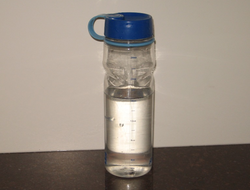Water: Are you getting enough?
Published: May 08, 2020
Water, the most important nutrient in your body, is an essential nutrient and comprises 60% of your body.
Within your body, water forms the basis of other fluids and is vital to all of your life supporting processes.
Without water you cannot survive for more than a few days.
Adequate hydration is essential for optimal body function as water has a variety of functions in your body. In addition to the obvious one of quenching your thirst water also:
- maintains homeostasis (constant internal conditions) in your body
- helps regulate your body temperature
- required for metabolic reactions often as a solvent for various compounds
- provides a medium for enzymatic reactions
- transports nutrients and wastes through the body
- acts as a lubricant for joints, spinal cord, and eyes
- helps maintain blood volume
- helps prevent and relieve constipation
- regulates electrolyte (sodium, potassium, and chloride) balance
- aids in digestion
Hydration and dehydration
Being properly hydrated requires that you consume enough fluids to replace fluids lost through your body processes.
Constituents of your body fluids are continually lost and gained.
To prevent catastrophic imbalances your body acts to adjust your body's water content.
When water is absorbed from blood by cells the composition of blood changes and this change initiates metabolic processes which result in thirst.
Your response to thirst is to drink fluid. Other metabolic processes send signals when sufficient fluid has been taken in.
In addition to the processes listed above, the external environment and your physical activity levels will influence how much fluid you require.
The external environment means your living environment and as well as weather related temperature, the temperature of your home, office and car can influence your hydration requirements.
You should consume more fluids if you are very active and/or you sweat a lot. There is some controversy about fluid intake although the current recommendations for fluid intake are:...link to the full article to learn more.
References
1.
Whitney, E. & Rady Rolfes, S. (2005). Understanding Nutrition. Belmont, CA: Thomson Wadsworth
2.
Gropper, S.S., Smith, J.L. & Groff, J.L. (2005). Advanced Nutrition and Human Metabolism (4thEd.). Belmont, CA: Thomson Wadsworth.
3.
CSEP (2009). Are your client's drinking enough fluid?

